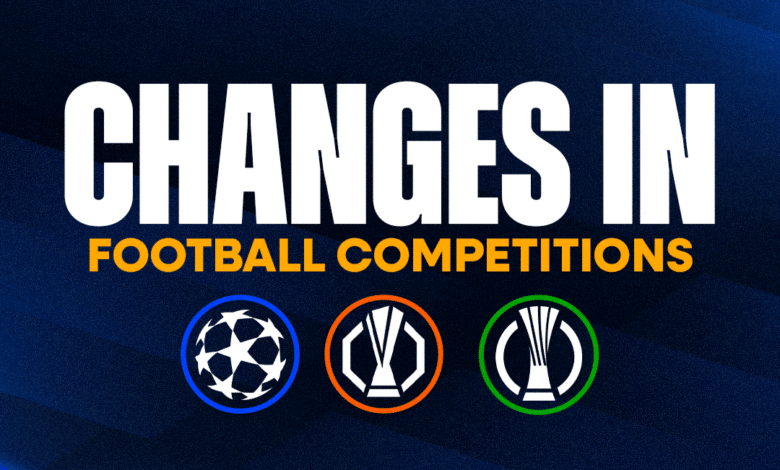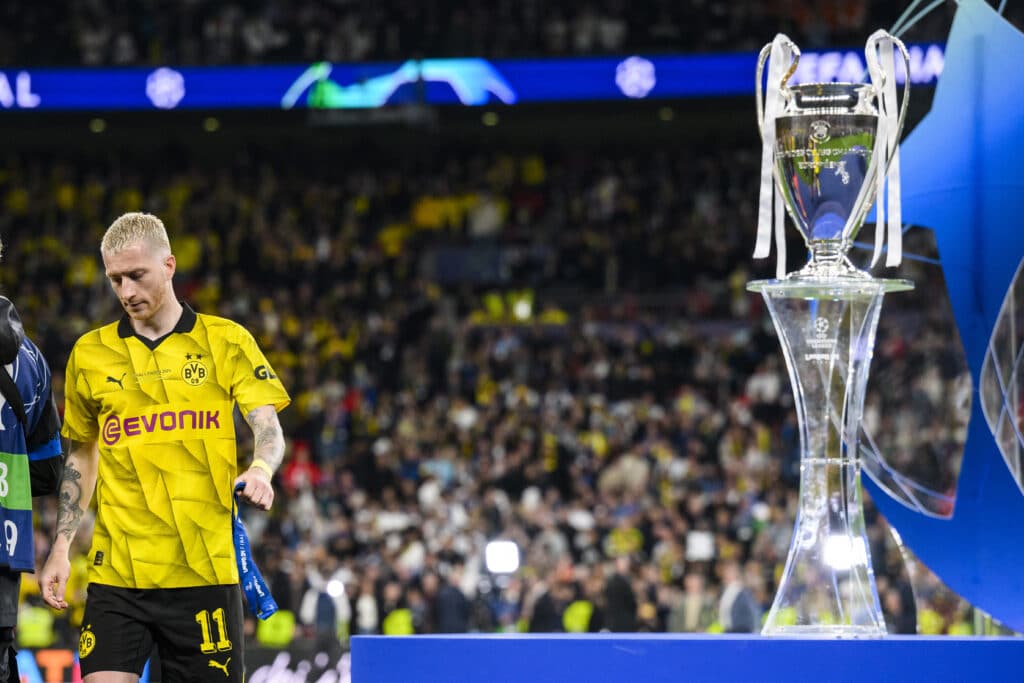It’s Time For a Change – Pt.1: Football competitions in need of a revamp

Football may be the world’s game, but even the most beloved competitions need a fresh coat of paint now and then. For all their history and prestige, some of the sport’s biggest tournaments are starting to feel… stale. The Premier League, the World Cup, and the FA Cup are incredible spectacles, no doubt, but they’re also held back by outdated traditions and predictable formats. In a sport that thrives on innovation, it’s time to think outside the box.
What if the Premier League embraced playoffs? What if the World Cup went supersized? What if the FA Cup stopped clinging to its replay tradition and leaned into chaos? These ideas might sound sacrilegious to the purists, but the reality is this: football is evolving, and so should its flagship competitions.
This isn’t about tossing out history; it’s about reimagining these tournaments to make them more dramatic, inclusive, and unforgettable for the next generation of fans. Let’s get bold.
It’s Time for a Change
The Premier League
The Premier League’s beauty lies in its chaos, but let’s be honest: the current format can feel predictable. By March, we often know the champions, the relegated teams, and the mid-table irrelevance squads planning their summer holidays. Enter the playoff system.
Picture this: the top eight teams qualify for a knockout playoff at the end of the season. Seeds are determined by regular-season standings, but the playoff determines the champion. Suddenly, Liverpool clawing their way back into fourth in April isn’t just about the Champions League—it’s a shot at the title. Imagine Manchester United pulling off a Leicester-style upset against Manchester City in a one-off final. Now that’s drama.

Of course, football purists will cry foul—“The league is about consistency!”—but let’s face it: football is about entertainment, and nothing is more entertaining than high-stakes elimination games. The NBA, NFL, and even MLS thrive on playoffs; why not give it a spin in the Premier League? Besides, with relegation battles still intact, the bottom of the table won’t lose its edge.
Yes, it’s a radical idea, but football needs radical energy. The days of one dominant team sleepwalking to the title? Let’s make them a thing of the past.
Son Heung-Min just entered elite territory: 100+ Premier League matches with a goal! ⚽️?
— 365Scores (@365Scores) December 16, 2024
The Korean King isn’t just scoring—he’s rewriting history, one net at a time. ??? pic.twitter.com/m3fHR9vmSJ
The World Cup
The World Cup is football’s crown jewel, but why stop at 48 teams in 2026? Let’s go all-in: an 80-team World Cup. Before you groan about “watering down the quality,” consider global inclusivity. Teams like Iceland, Panama, or North Macedonia would have a genuine shot to shine on the biggest stage. It’s not just about representation; it’s about growth.
The expanded format could feature 16 groups of five, with the top two advancing to a knockout stage of 32. Every game would matter—gone are the days of dead rubbers in the final group match. Plus, smaller nations would get to test themselves against elite teams, creating a pipeline for growth in previously neglected regions.
To accommodate the size, host multiple nations across continents. Picture a World Cup shared by Europe and Africa or South America and Asia. Logistically insane? Maybe. But the spectacle would be unmatched. Imagine Brazil playing a group-stage match in Buenos Aires and a knockout game in Cape Town. It’s football tourism that has taken to the next level.
This expansion wouldn’t just be a tournament; it’d be a global festival. Yes, FIFA would cash in, but the real winners would be fans and players from every corner of the world. Let the world’s game truly belong to the world.
How old will your favorite stars be in the 2034 World Cup in Saudi Arabia ? ? pic.twitter.com/zKdcqqnKs9
— 365Scores (@365Scores) December 13, 2024
The FA Cup
The FA Cup loves to bill itself as the “magic of the cup,” but let’s admit it: replays have sucked the life out of the competition. Nobody wants to see a 0-0 draw replayed on a soggy Tuesday night in February. So here’s the plan: scrap replays and replace them with sudden-death penalty shootouts after 90 minutes.
You want magic? Nothing’s more magical—or devastating—than penalties. Picture a fifth-tier side knocking out Chelsea in a shootout in front of 3,000 fans. Suddenly, those “giant-killer” dreams feel more tangible. It’s quick, brutal, and perfect for the modern fan’s attention span.
But let’s go further. To level the playing field, introduce a draft for Premier League teams entering the third round. Lower-league teams get to “draft” their opponents from the top-flight pool. Imagine the drama as a League Two manager publicly picks Liverpool, calling out Arne Slot for “playing the B team.” The narrative potential is endless.

And while we’re at it, make the semifinals and final neutral site fan festivals. Think Glastonbury meets football. Multiple matches, live music, and an atmosphere that reinvents the Cup’s appeal to younger generations.
The FA Cup’s history is glorious, but its future needs reinvention. With bold changes, it can once again be the most unpredictable, exciting competition in football.
A mouthwatering FA Cup clash! ?
— 365Scores (@365Scores) December 2, 2024
Arsenal vs Man Utd. A classic rivalry renewed. Let the battle begin! ⚔️ pic.twitter.com/klsWe6Sf7T
The Already Revamped Competitions
FIFA Intercontinental Cup
FIFA’s new Intercontinental Cup is a streamlined, no-nonsense showdown designed to pit the world’s best club champions against each other. Think of it as the successor to the annual FIFA Club World Cup but tightened up, refined, and rebranded. The inaugural edition in 2024 shakes things up by introducing a single-elimination format, making every match do-or-die. Six teams—each representing their respective confederations—will duel for bragging rights, prestige, and a shiny new trophy. It’s a condensed global battle where mistakes aren’t forgiven, and legends are made overnight.
The 2024 FIFA Intercontinental Cup final is set to take place on Wednesday, 18th December, at the Lusail Stadium in Qatar. A clash between Spanish giants Real Madrid and Mexican challengers Pachuca, with global bragging rights on the line.
Real Madrid, winners of the 2023–24 UEFA Champions League, arrive in Lusail as the favourites, skipping straight to the final thanks to their European dominance. Pachuca, on the other hand, earned their spot the hard way, battling through the FIFA Challenger Cup on 14th December to represent the rest of the world. It’s a classic matchup of European power versus CONCACAF grit, and with both teams eyeing the historic honour of becoming the first Intercontinental Cup champions, the stage is set for a thrilling showdown under the Qatari lights.
Clash of continents! ??
— 365Scores (@365Scores) December 14, 2024
Real Madrid face Pachuca in the FIFA Intercontinental Cup final this Wednesday. ??⚡??
Pachuca booked their spot with a nail-biting 6-5 shootout win over Al Ahly—can they shock the kings of Europe? ?? pic.twitter.com/x1PQpDio7E
What’s the structure of the tournament?
Here’s how it works. The champions of Asia (AFC), Africa (CAF), and Oceania (OFC) start the party, with the AFC and OFC winners clashing first in what FIFA now calls the “African–Asian–Pacific Cup play-off”. The CAF champions enter in Round 2, followed by the Copa Libertadores (CONMEBOL) and CONCACAF Champions Cup winners squaring off in the creatively named “Derby of the Americas”. The victors of these duels meet for the “Challenger Cup”, setting up a blockbuster final against Europe’s Champions League winner, waiting like the end boss in a video game. The last two games unfold on neutral ground in Qatar, where football’s brightest clubs will fight under desert skies for global supremacy.
What’s interesting is how the Intercontinental Cup’s efficiency mirrors its ambition. Unlike the bulkier formats of the past, every game matters. There are no group stages—just knockout football at its purest, where a bad day can send even the mighty packing. FIFA, sensing the need for something compact but prestigious, seems to have struck gold. Short, sharp, and star-studded—this tournament feels like the ultimate global football “mini-series.”
FIFA Club World Cup
If the FIFA Intercontinental Cup is a tightly wound thriller, then the FIFA Club World Cup 2025 is the big-budget blockbuster—the Champions League, but global. Expanded to a sprawling 32-team format and hosted by the United States, it’s FIFA’s boldest gamble yet. Spanning from mid-June to mid-July, the revamped tournament resembles the FIFA World Cup itself, featuring eight groups of four teams. It’s massive, extravagant, and built for prime-time TV, with big clubs, superstar players, and enough games to leave football fans happily exhausted.
A look back at the Club World Cup Winners?⚽
— 365Scores (@365Scores) December 6, 2024
Who will be the next World Champion?? pic.twitter.com/2J5aT7ckAn
Here’s how it works: teams qualify via a mix of merit and rankings, with spots handed out to continental champions from 2021 to 2024. UEFA leads the way with 12 slots, while South America (CONMEBOL) gets 6. The AFC, CAF, and CONCACAF each claim 4, and the OFC receives a single slot. The host nation, in this case, the U.S., adds one more representative—this time Inter Miami CF, making Lionel Messi and co. the inevitable centrepiece. Once in, the competition mimics the FIFA World Cup blueprint: eight groups, knockout rounds, and a single champion crowned in a climactic final.

The decision to blow the tournament up to this scale hasn’t come without controversy. Critics argue that the expanded format overloads an already congested football calendar, putting player welfare at risk. FIFPRO and top leagues like La Liga have publicly bristled at FIFA’s plan, accusing it of prioritizing profit over practicality. On the flip side, fans get to see heavyweights like Real Madrid, Manchester City, Flamengo, and Al Ahly battling for the same crown, potentially delivering dream matchups we rarely witness outside video games or exhibition tours.
Ultimately, the 2025 Club World Cup isn’t just a tournament—it’s a statement. FIFA wants this to be the undisputed pinnacle of club football, an event where champions across the globe settle the “who’s the best?” debate once and for all. It’s big, bold, and inevitably Messi-fied.
Champions League
For decades, the UEFA Champions League has reigned as football’s crown jewel, blending history, glamour, and impossibly high stakes into a spectacle unlike any other. But starting in the 2024-25 season, Europe’s top competition is getting a facelift—a Swiss-style format that promises more matches, tougher tests, and a heavier dose of chaos. The group stages are gone, replaced by a single 36-team “league phase” that feels like the Champions League went to the gym, bulked up, and is now ready to flex.
Here’s how it works. Instead of the old eight groups of four teams, all 36 clubs will be pooled into one massive table. But don’t worry—teams aren’t playing everyone. Instead, each club plays 8 games against 8 different opponents—four at home, four away. These matchups are determined by seeding, ensuring a mix of elite showdowns and winnable ties. Every point counts, as the final standings determine who advances. The top 8 teams cruise straight into the knockout rounds, while those finishing 9th to 24th enter a two-legged playoff for the final Round of 16 spots. Finish 25th or lower, and that’s it—pack your bags.
The goal? To make every match matter and maximize drama. No more dead rubbers in week six of the group stage; every game will impact a team’s position in the all-important table. It also means we’re guaranteed fresh, intriguing matchups that wouldn’t have happened under the old system. Think Bayern Munich vs. PSG in September or Manchester City heading to Barcelona for a must-win under the lights. These fixtures are no longer reserved for the knockout rounds but sprinkled across the autumn calendar like footballing gold dust.

The driving force behind UEFA’s revamp is simple: more games, more money, more fans. The expanded format boosts the number of matches from 125 to 189, providing broadcasters with more content and clubs with greater revenue opportunities. But beyond the finances, there’s a competitive edge to this overhaul. By increasing the number of games and opponents, UEFA hopes to create a richer, more unpredictable competition—one where consistency over eight matches separates the great from the good.
Critics argue the changes are a bit much. Adding games to an already jam-packed calendar raises familiar concerns about player welfare and fixture congestion. Domestic leagues, particularly in England and Spain, are already juggling brutal schedules, and an extra two games per club feels like adding fuel to the burnout fire. For mid-tier teams, the Swiss model might be a mixed blessing—it offers more exposure but also means facing European juggernauts more often. A group-stage upset like Sheriff Tiraspol beating Real Madrid in 2021 is less likely to happen in this format.
Still, there’s an undeniable buzz about what’s to come. The Swiss-style system shakes up a competition that has often leaned on its traditional format. For fans, it means more marquee matchups earlier in the tournament and a knockout phase that feels earned rather than automatic. Sure, the purists might grumble, but UEFA’s message is clear: the Champions League is evolving, and if you love football, you’ll love this. More games, bigger stakes, and a whole lot of drama? Sign us up.
By Nicky Helfgott – NickyHelfgott1 on X (Twitter)
Keep up with all the latest football news and Premier League news on 365Scores!



